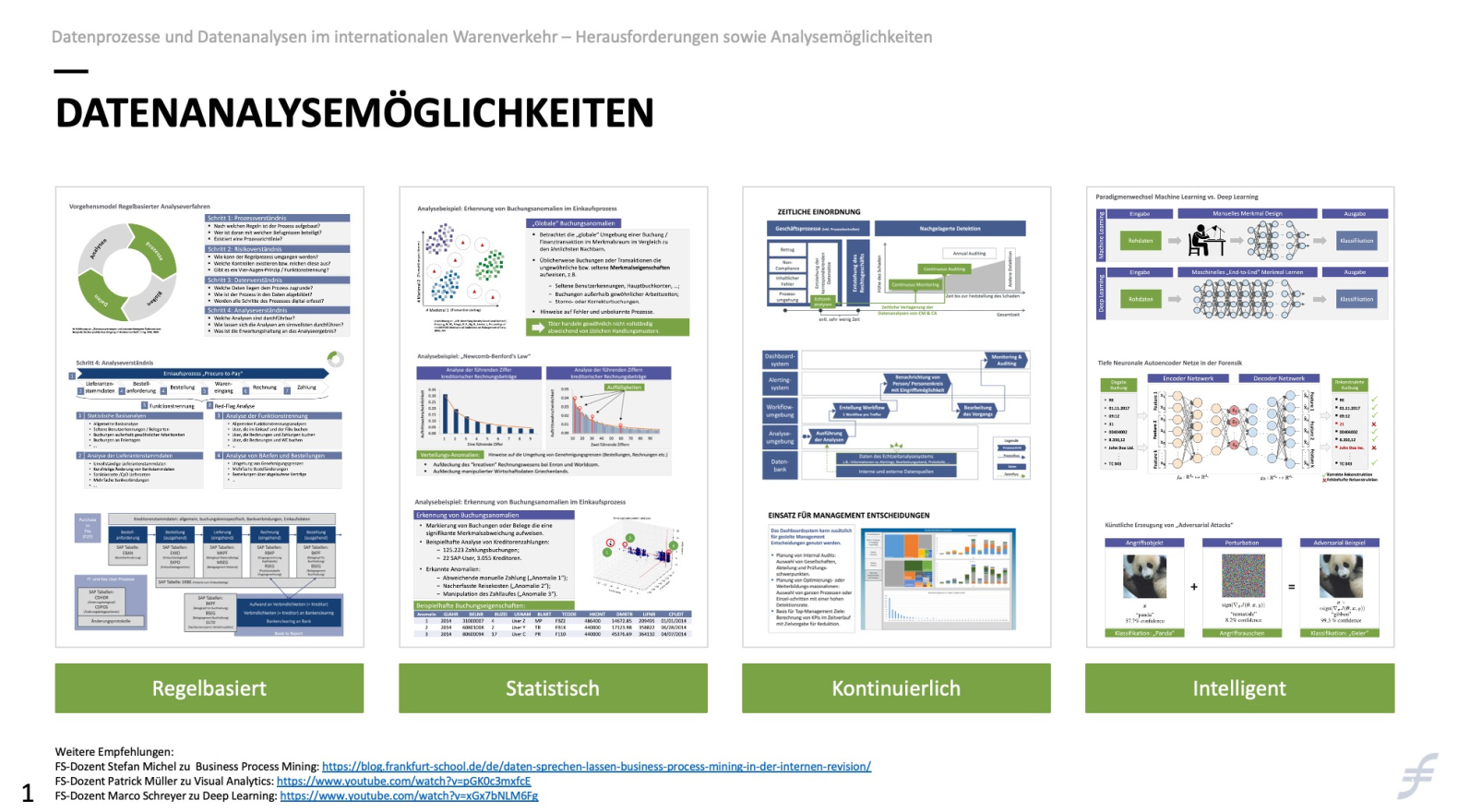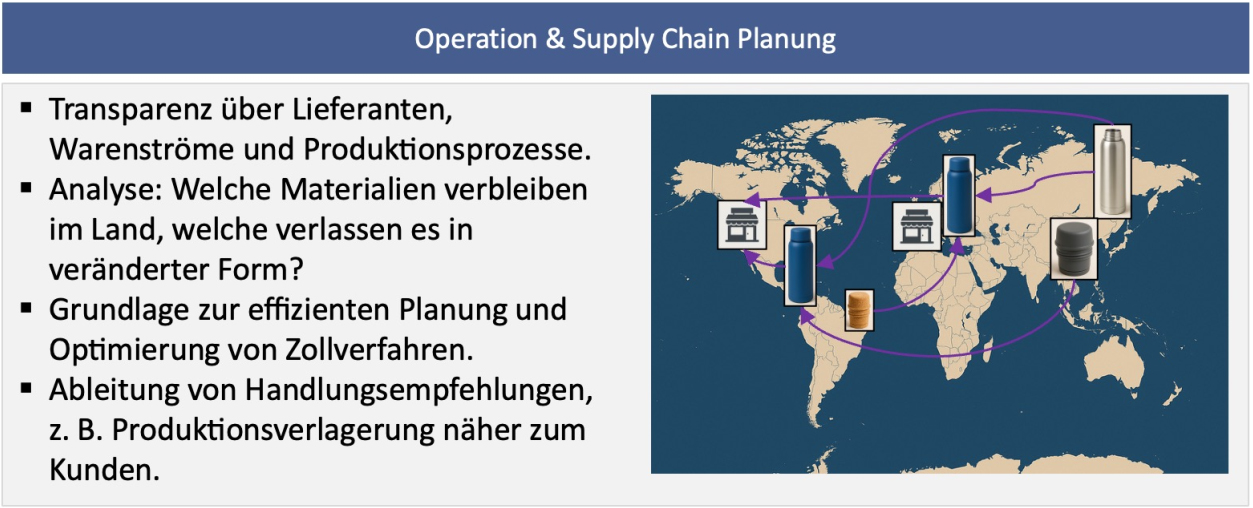Companies involved in the international trade of goods are facing increasingly complex regulatory requirements. For example, the EU’s Carbon Border Adjustment Mechanism (CBAM) stipulates that detailed CO₂ emissions data must be provided for every product and production site involved in imports. Similarly, the new EU Deforestation Regulation (EUDR) requires proof that imported agricultural products are not derived from deforestation. In addition, the planned EU Supply Chain Due Diligence Directive (CSDDD) will oblige companies to exercise due diligence regarding human rights and the environment throughout the entire supply chain. The EU Methane Regulation aims to record and reduce methane emissions along the supply chain.
Requirements are also increasing outside of Europe. In the United States, for example, the Uyghur Forced Labor Prevention Act (UFLPA) prohibits the import of certain goods from Xinjiang, China, unless it can be verified beyond a doubt that no forced labour was involved in their production. At the same time, Chinese data protection and security laws (e.g. PIPL and DSL) severely restrict the transfer of personal or critical data abroad.
These examples demonstrate that legal requirements enforce the collection and management of detailed data, including emission values, supplier data, proof of origin and production.
Secure data processes depend on excellent data quality. Regulatory requirements can only be reliably met with complete, accurate and always up-to-date master data. It is important that this data is free of duplicates and inconsistencies. Traceability and controlled access also play a crucial role. Incorrect or incomplete data, on the other hand, carries the risk of compliance violations remaining undetected or potential risks being overlooked.
In view of increasing requirements, data complexity and threats, data-based analysis methods are becoming increasingly important. They not only help to identify anomalies and risks at an early stage, but also provide valuable insights for process optimisation and strategic decision-making.

Linking supplier, shipping and production data allows material flows to be tracked transparently. This enables companies to determine the location of each part of their value chain, which is a prerequisite for complying with regulations such as CBAM and EUDR. At the same time, simulations can be used to analyse production relocations and evaluate alternative supply routes.

Process Mining extracts real process flows from system log data and visualises them. This allows the identification of media breaks and inefficient processes, long idle times or time-consuming queries and coordination. Another example is clustering to classify dispatchers or suppliers who regularly show deviations or particularly high processing costs.
Automated data comparisons, known as multi-way matches, enable the comparison of orders, deliveries, invoices and customs declarations with the relevant master data. The aim is to identify incorrect processes before they result in any damage. Such errors include incorrect customs tariff numbers, unlicensed products or goods with implausible origins.
Any compliance violations can be identified at an early stage and reported automatically to the responsible parties.
Fully digitalised processes and modern analysis methods require comprehensive data exchange in international trade. Therefore, secure data communication is essential.
Therefore, secure communication channels and healthy scepticism towards unexpected requests are crucial.
The demand for secure data processes in international trade will continue to grow, as will the complexity of verification and analysis. Companies and auditors must take a proactive approach to managing new risks while ensuring efficient processes.
The key to success lies in a combination of clean data management, robust IT security and modern analytics tools. Those who have their own data processes under control and use the right digital tools can not only prevent compliance violations, but also reduce costs and gain new insights for strategic decisions.
Our Certified Audit Data Scientist certificate programme will teach you how to learn and implement the above-mentioned analytical approaches in practice. Find out more about the content at www.fs.de/cads and prepare your company for a data-driven future.